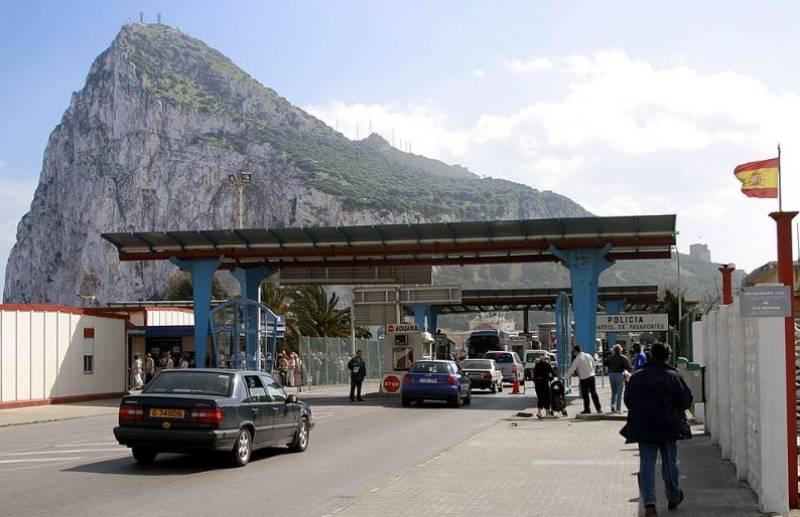
To be listed on the haciendadelalamo TODAY MAP please call +34 968 018 268.
article_detail
Date Published: 04/06/2025
Border loopholes and post-Brexit confusion cause more treaty tension in Gibraltar
As treaty talks drag on, critics question Spain’s border enforcement and whether any fair deal in Gibraltar is possible

The ongoing negotiations between the United Kingdom and the European Union over Gibraltar's future relationship with the EU continue to stir debate on both sides of the border. The Spanish authorities are once again under the spotlight for how they handle passport controls, and a recent study has questioned whether “shared prosperity” is even possible given the current tensions.
Since Brexit, Gibraltar has found itself in a unique and delicate position. Although it is a British Overseas Territory and left the EU along with the UK, Gibraltar shares a land border with Spain and has historically depended on close cross-border economic ties, particularly with the neighbouring town of La Línea de la Concepción.
This area of southern Spain has long faced high unemployment and economic hardship, in stark contrast to The Rock’s much more prosperous economy, meaning that thousands of workers pass over and back each and every day.
To avoid the disruption of a hard border following Brexit, the UK, Spain and the EU have been working toward a treaty that would preserve the free flow of people and goods.
One of the main goals of this treaty is to promote what negotiators have called “shared prosperity,” the idea that both Gibraltar and the surrounding Spanish region can benefit economically from continued cooperation and open borders.
However, a recent study by law students at the University of Málaga challenges the practicality of this vision. The study concludes that unless the treaty includes concrete measures to harmonise tax and labour laws between Gibraltar and Spain, the outcome will be lopsided, with Gibraltar enjoying most of the benefits while inequality persists or even grows on the Spanish side.
The students argue that The Rock’s low-tax system and more flexible working conditions give it a competitive edge that would be reinforced if border controls are eased without addressing structural imbalances. Without harmonisation, they say, “shared prosperity” risks becoming an empty slogan.
At the same time, a separate controversy has emerged around how Spain enforces EU border rules at the crossing between Gibraltar and La Línea, an issue which has reared its head more times to count.
According to European law, (specifically Regulation (EU) 2016/399, also known as the Schengen Borders Code) third-country nationals, which includes British citizens post-Brexit, must have their passports stamped upon entry and exit from the Schengen area. This includes Gibraltarians, who hold British passports, even though they do not require visas for short visits.
In practice though, Spain hasn’t been stamping the passports of Gibraltarian residents when they cross the border with any real consistency. Spain has actually admitted that this is deliberate, an informal and unspoken concession to make daily life easier for people who live and work on either side.
So essentially, border control officers pick and choose whether they want to stamp Gibraltar’s red ID cards.
Needless to say, not everyone agrees with this slapdash approach. A Spanish police inspector, formerly in charge of the border post at La Línea and now suspended from duty, has filed a complaint with the European Commission alleging that Spain’s failure to enforce passport stamping and entry checks for Gibraltarians violates the Schengen Borders Code.
Of course he’s quite right in theory and the Commission has confirmed that it is reviewing the complaint, which centers on two key legal points: Article 6, which outlines the conditions under which third-country nationals can enter the EU and Article 11, which requires systematic stamping of travel documents.
In the inspector’s view, Spain’s leniency effectively allows Gibraltarians to bypass rules that are strictly applied to all other non-EU citizens.
Ultimately, this sticky situation highlights the difficult balancing act faced by everyone around the negotiation table, and explains to an extent why it’s taking so long to reach an agreement.
On one hand, both Spain and Gibraltar have an interest in keeping the border as straight-forward as possible to support the thousands of workers who cross it every day. On the other hand, failing to enforce EU rules could raise legal and political questions, particularly among Spanish officials and others who feel that Gibraltar is already receiving preferential treatment.
The far-right party Vox, for example, recently questioned the Spanish government about the issue in Parliament, using it to accuse Madrid of undermining national sovereignty and failing to protect Spanish interests.
At the core of both controversies is a deeper question about fairness, enforcement and the realities of post-Brexit coexistence. Can a treaty be designed that truly benefits people on both sides of the Gibraltar border or will it end up reinforcing the status quo in which Gibraltar prospers while the surrounding Spanish region struggles?
Until the text of the proposed treaty is made public, and its provisions on tax and labour are known, these questions will remain open.
Image: Arne Koehler via Wikimedia Commons
Loading
Sign up for the Spanish News Today Editors Roundup Weekly Bulletin and get an email with all the week’s news straight to your inbox
Special offer: Subscribe now for 25% off (36.95 euros for 48 Bulletins)
OR
you can sign up to our FREE weekly roundup!
Read some of our recent bulletins:
Discount Special Offer subscription:
36.95€ for 48 Editor’s Weekly News Roundup bulletins!
Please CLICK THE BUTTON to subscribe.
(List price 3 months 12 Bulletins)
Read more stories from around Spain:
Contact Murcia Today: Editorial 000 000 000 /
Office 000 000 000





















